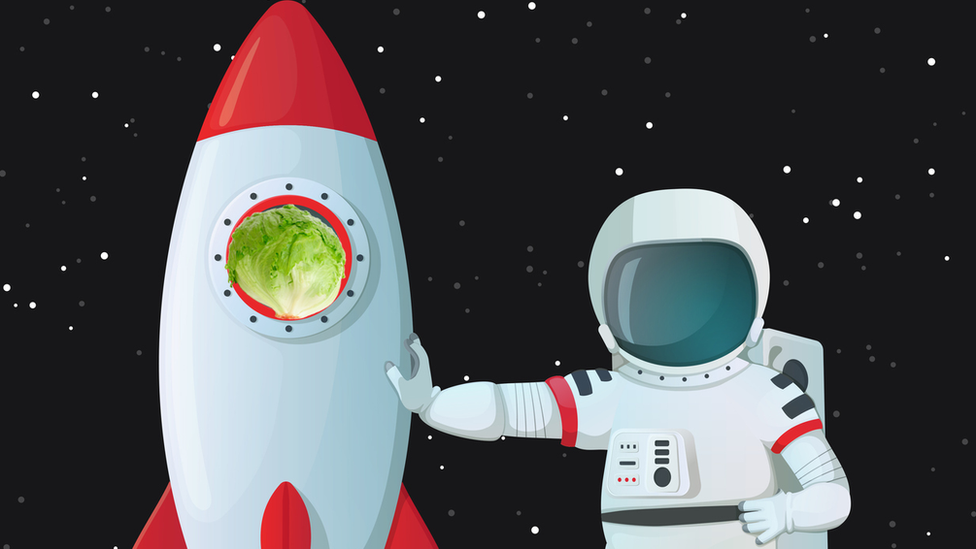Rocket science: Why 'space salad' grows slower than 'Earth salad'
- Published
- comments

Growing fruit and veg isn't rocket science...or is it?
Scientists have been looking at the impact of a trip to space on rocket seeds.
We're not talking about seeds for growing a spaceship (although that would be cool), we're talking about rocket the salad leaf.
They've discovered that seeds which went to outer space and came back to Earth, grew slower than seeds that stayed on Earth.
Rocket is a type of salad leaf
In an experiment, called the 'Rocket Science' project, a million rocket seeds were sent to the International Space Station (ISS) in 2015 with British astronaut Tim Peake.
When they returned to Earth six months later, 600,000 children were asked to plant them and monitor their growth.
Tim said: "In one of the largest and most inspirational experiments of its kind, more than half a million young people collected reliable data to help the scientists at Royal Holloway University investigate the effects of spaceflight on rocket seeds."
The experiment's results showed that the seeds that went to space grew just as successfully as the ones that stayed on Earth, but that they took a little longer to reach full size.
Space Seeds
How did going to space affect the seeds?
The scientists have been looking at why the seeds that went to space might have grown slower, and their findings were recently published in the journal Life.
Dr Jake Chandler, who led the research, said the study suggests that spaceflight "accelerated the ageing process" of the seeds.
The journey meant they were affected by space radiation and the mechanical vibrations of the spacecraft.
In fact they found that while they were on the ISS, the absorbed radiation dose of the seeds was 100 times greater compared to the Earth's surface.
The space seed experiment
Why is this research important?
It's hoped that the findings will take scientists a step closer to knowing whether food can be grown on long space missions, for example to Mars.
The experts say it could be achievable, if the seeds are protected from things which might harm them (for example space radiation).
Tim said: "When humans travel to Mars, they will need to find ways to feed themselves, and this research helps us understand some of the biology of seed storage and germination which will be vital for future space missions."
Major Tim Peake has lived and worked aboard the ISS
Dr Chandler added: "Transporting high quality seeds to space and beyond will be crucial for growing plants that support human exploration of space, Mars and other worlds."
He added that because the seeds remained alive, "the prospect of eating home-grown salad on Mars may be one small step closer."
So the future of space salad is looking green!
- Published6 January 2020
- Published10 August 2023
- Published28 September 2018
